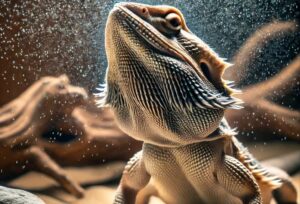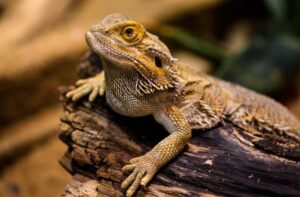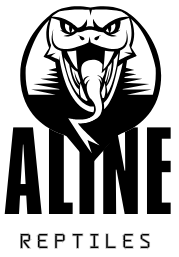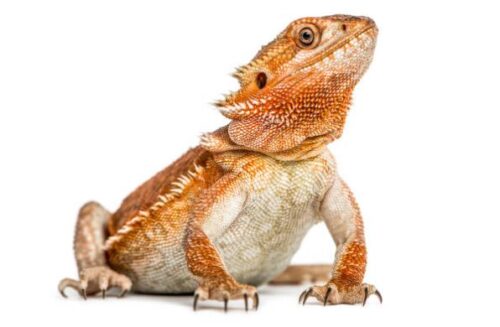Imagine watching your beloved bearded dragon, a typically calm and composed reptile, suddenly start shaking. It’s a sight that can send any pet owner into a panic, leaving you wondering, What’s going on? If you’ve ever asked yourself, “Why is my bearded dragon shaking?” you’re not alone.
Shaking in bearded dragons can stem from a variety of reasons, ranging from nutritional deficiencies to environmental issues. Understanding the cause is crucial for your pet’s health and well-being. Let’s dive into the possible reasons and solutions to ensure your scaly friend stays happy and healthy.
Common Causes of Shaking in Bearded Dragons

Calcium Deficiency (Metabolic Bone Disease)
Calcium deficiency is a leading cause of shaking in bearded dragons. A lack of calcium, often paired with insufficient UVB lighting, leads to metabolic bone disease (MBD). MBD weakens the bones and muscles, causing tremors or uncontrollable movements.
- Symptoms of MBD:
- Shaking or twitching limbs.
- Weakness or inability to climb.
- Deformed or swollen bones.
- Solution: Ensure a diet rich in calcium and provide UVB lighting to help your dragon process vitamin D3.
Here are some calciums you can consider
- Superior Calcium from Oolitic Aragonite
- Highly digestible and phosphorus free
- Superfine powder for bioavailability
- PACKAGE: Including 18 pcs small calcium stone (3 Pack)
- SIZE: About 0.47"L x 0.47"W x 0.47"H, please confirm the size before purchase
- MATERIAL: Contains a variety of trace elements, improve the immunity of reptiles and keep healthily
Temperature and Environment Issues
Bearded dragons are ectothermic and rely on external heat sources to regulate their body functions. Incorrect temperatures can hinder muscle control, resulting in shaking.
- Ideal Temperature Ranges:
- Basking area: 95–110°F.
- Cool side: 75–85°F.
- Solution: Use a thermometer to maintain the correct temperature gradient in the habitat.
Temperature Gun for Reptiles
- 【2024 Upgrade Version & Not for Human】THIS IS NOT A MEDICAL THERMOMETER,DO NOT USE TO TAKE TEMPERATURE OF BODY OR FOREHEAD.The NEWEST...
- 【Acuracy & Larger Font Size】The latest temperature sensor technology gives this thermometer gun more accurate readings,combined with a...
- 【90 Degree Batteries Cover Upgrade】With a new E-Z to open design, the laser temperature gun battery cover drops down a full 90 degree...
Stress or Fear
Shaking may also occur due to stress or fear. Bearded dragons are sensitive to changes in their environment, such as loud noises, new tank mates, or excessive handling.
- Common Stress Triggers:
- Sudden habitat changes.
- Frequent handling.
- Presence of predators or other pets.
- Solution: Minimize stressors and provide hiding spots to help your dragon feel secure.
Neurological Problems
Shaking caused by neurological issues can result from injuries, genetic conditions, or infections affecting the nervous system.
- Signs of Neurological Problems:
- Loss of coordination.
- Persistent head tilting.
- Difficulty moving or standing.
- Solution: Consult a reptile veterinarian for a thorough examination.
Dietary Imbalances
A diet lacking in essential vitamins and minerals, especially calcium and vitamin B, can lead to shaking. Feeding inappropriate foods or relying on an unbalanced diet can exacerbate the problem.
- Solution: Offer a variety of gut-loaded insects, leafy greens, and calcium supplements. Avoid over-relying on fruit or nutrient-poor foods.
Illness or Infection
Certain illnesses or infections can affect a bearded dragon’s muscles or nervous system, leading to shaking.
- Additional Symptoms to Watch For:
- Lethargy.
- Loss of appetite.
- Changes in skin color or shedding patterns.
- Solution: If shaking accompanies other symptoms, seek veterinary advice immediately.
Diagnosing the Issue with Bearded Dragon Shaking
Observation and Documentation
Carefully monitor your dragon’s behavior. Record when the shaking occurs, how long it lasts, and any accompanying symptoms.
Consulting a Reptile Veterinarian
A veterinarian specializing in reptiles can perform diagnostic tests, such as blood work or X-rays, to determine the root cause. Early intervention can make a significant difference in treatment outcomes.
Treatment and Management Options
Calcium and Vitamin Supplements
If the shaking is due to calcium deficiency, supplements can help.
- Steps to Take:
- Dust live insects with calcium powder.
- Use UVB lighting to aid vitamin D3 synthesis.
Top products to consider
- ✔️ Liquid calcium concentrated formula reptile supplements
- ✔️ Provide the calcium your reptile needs for strong, healthy bones and vital bodily functions
- ✔️ Calcium is a critical essential nutrient for reptiles
Adjusting the Habitat
Proper environmental conditions are crucial.
- Checklist for Habitat Adjustments:
- Maintain appropriate temperatures with a gradient.
- Provide hiding spots to reduce stress.
- Use UVB bulbs for at least 10–12 hours daily.
Dietary Adjustments
Feeding the right diet can correct imbalances.
- Recommended Foods:
- Protein: Gut-loaded crickets, dubia roaches, and mealworms.
- Vegetables: Collard greens, mustard greens, and squash.
- Occasional Treats: Blueberries or mango (in moderation).
Medication or Veterinary Treatments
If infections or neurological conditions are the cause, your vet may prescribe antibiotics, antifungal medications, or other treatments.
Preventing Shaking in Bearded Dragons
Regular Health Checks
Monitor your dragon’s weight, appetite, and energy levels. Catching issues early can prevent serious health problems.
Proper Habitat Setup
A well-maintained habitat reduces the risk of stress and health issues.
- Essentials for a Healthy Habitat:
- A reliable heat lamp.
- High-quality UVB lighting.
- A spacious enclosure with hiding spots and climbing areas.
Balanced Diet and Supplements
Offer a varied and nutritious diet to meet all dietary needs. Ensure calcium supplements are included in their feeding routine.
When to Worry and Take Action

It’s normal for a bearded dragon to move or twitch slightly during sleep or after a meal. However, persistent or severe shaking, especially when combined with other symptoms like lethargy or appetite loss, is a red flag.
Key Signs to Watch For:
- Shaking that doesn’t stop or worsens.
- Difficulty standing or walking.
- Changes in behavior or eating habits.
If any of these occur, don’t wait—consult a vet immediately.
FAQs About Bearded Dragons Shaking
1. Why does my bearded dragon shake when walking?
Shaking while walking is often a sign of calcium deficiency or metabolic bone disease (MBD). Ensure your dragon receives proper UVB lighting and calcium supplements to prevent these issues.
2. Can stress cause shaking in bearded dragons?
Yes, stress can lead to shaking. Common stressors include loud noises, frequent handling, or changes in their environment. Reducing stressors and providing hiding spots can help.
3. How do I know if my bearded dragon has metabolic bone disease?
Signs of MBD include shaking limbs, swollen or deformed bones, and difficulty climbing or walking. If you suspect MBD, consult a vet immediately for diagnosis and treatment.
4. Is shaking after eating normal for a bearded dragon?
Mild shaking after eating is usually not a concern, but frequent or severe shaking could indicate a health issue, such as a dietary imbalance or illness.
5. When should I see a vet about my bearded dragon’s shaking?
If the shaking is persistent, severe, or accompanied by other symptoms like lethargy or appetite loss, it’s crucial to see a reptile veterinarian as soon as possible.
Conclusion
Shaking in bearded dragons can be alarming, but it’s often a symptom of an underlying issue that can be addressed with the right care. Whether it’s adjusting their diet, refining their habitat, or seeking veterinary help, your actions can significantly impact your dragon’s health.
When you ask yourself, “Why is my bearded dragon shaking?” remember this: being proactive and informed is the key to ensuring your scaly companion leads a long, healthy, and happy life.







